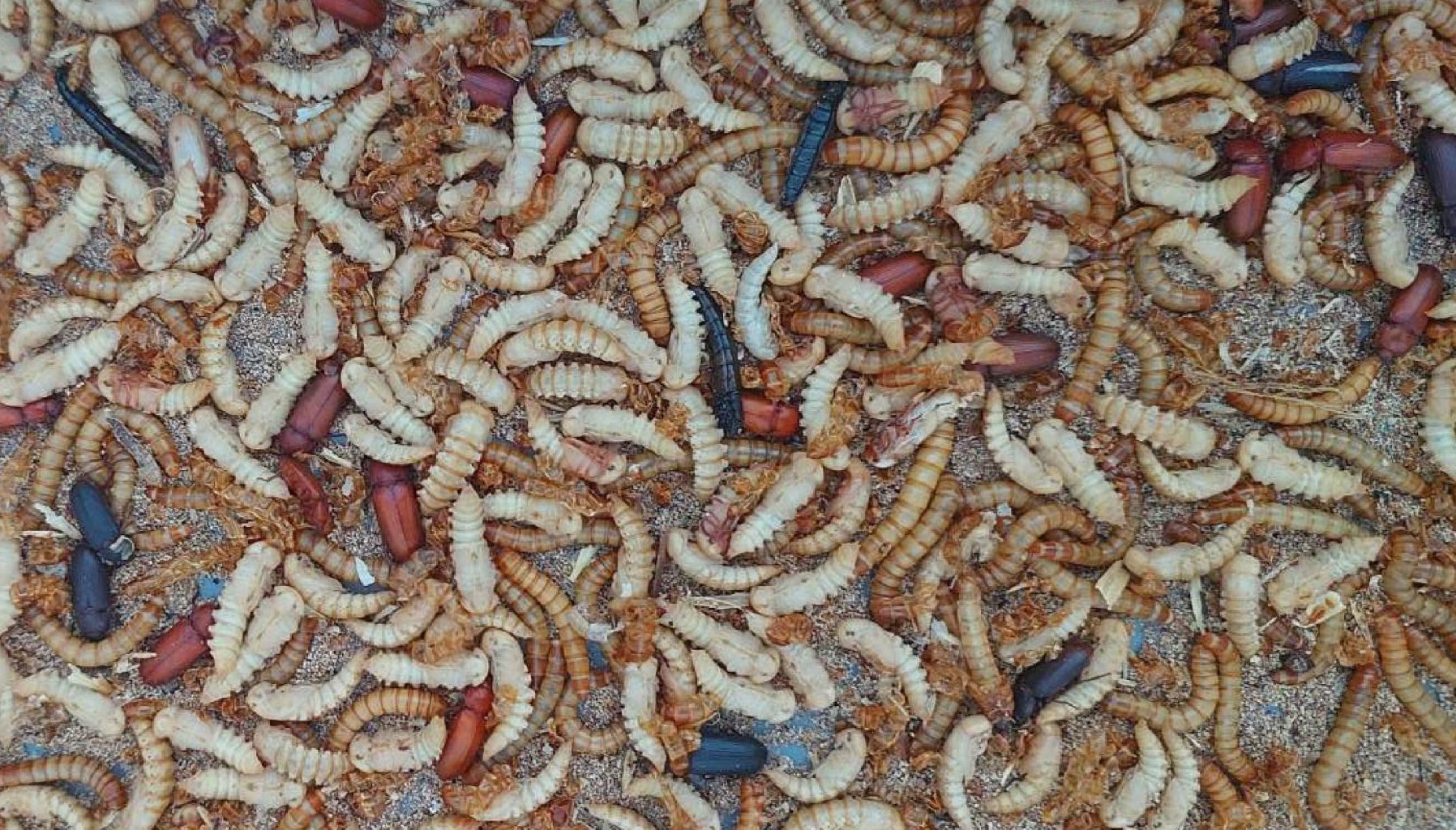Introduction:
Mealworm farming has gained significant attention as a sustainable solution to food insecurity and environmental challenges. These tiny, protein-rich creatures are easy to rear, require minimal resources, and hold the potential to revolutionize how we think about food systems. However, mealworm farming is not without its challenges. One of the most significant issues faced by farmers is the premature transformation of mealworms into beetles within their trays. This seemingly natural process can wreak havoc on the delicate balance of a farm, impacting the entire tray’s ecosystem and reducing productivity. In this blog post, we’ll delve into how beetle formation negatively affects mealworm farming and what can be done to manage this challenge effectively.
The Problem of Premature Beetle Formation:
Mealworms undergo a natural life cycle: egg, larva (mealworm), pupa and finally, adult beetle. While beetle formation is an essential part of breeding, its occurrence within production trays can create several problems:
- Increased Competition for Resources:
When mealworms in a production tray turn into beetles, they begin competing for the same limited resources, such as food and water. This added competition stresses the remaining mealworms, stunting their growth and reducing their overall health. - Cannibalism:
Beetles are known to feed on mealworms, especially the smaller or weaker ones. This can lead to a significant reduction in the population of mature mealworms, which are the primary product of this type of farming. - Contamination of the Tray:
Beetles defecate more frequently than mealworms and are prone to spreading waste across the tray. This increases the risk of fungal and bacterial infections that can wipe out entire colonies. Preventing these type of infections at a small rural scale can be quite challenging. - Disruption of Temperature and Moisture Levels:
Beetles require slightly different environmental conditions than mealworms. Their presence in the tray can alter the humidity and temperature balance, leading to suboptimal conditions for the mealworms. - Reduced Productivity:
Since beetles do not contribute to the farm’s primary output (larvae), their formation essentially removes productive individuals from the population, directly impacting yield and profitability.
Lessons Learned from the Farm:
In the mealworm farming journey, the farmers encountered a situation where a significant portion of the mealworms in a few tray transformed into beetles. Initially, we underestimated the impact, thinking it was just a natural part of the process. However, within weeks, the entire tray showed signs of stress:
- The remaining mealworms were visibly smaller and less active.
- There was a noticeable foul smell from the tray due to increased waste.
- Fungal growth began to appear, affecting neighboring trays.
It became clear that immediate action was necessary to prevent further damage. The beetles were collected and isolated and we thoroughly cleaned the tray. Additionally, I held discussions with the farmers, emphasizing the importance of weekly checks to avoid similar setbacks in the mealworm farming process. Such proactive steps are crucial, as a widespread occurrence across all trays could result in significant financial losses with potentially devastating impacts on the farm’s sustainability.
Mitigation Strategies:
Here are some effective strategies I’ve learned to manage beetle formation:
- Frequent Sorting:
Implement a routine system to regularly sort mealworms and separate pupae into designated breeding trays. This process helps prevent beetles from emerging in production trays, thereby maintaining optimal conditions for mealworm growth. Daily sifting is recommended once pupae start forming to ensure complete segregation of beetles and mealworms. - Supplementary Feeding:
Ensure the mealworms have access to sufficient food and moisture to minimize stress and delay premature pupation. Providing moisture-rich options, such as carrot slices, is particularly effective in maintaining hydration levels and supporting healthy development. - Pest Management:
Maintain a strict hygiene protocol by keeping trays clean and well-maintained to mitigate the spread of contaminants introduced by beetles. This ensures that future mealworm populations remain healthy and of high quality, thereby preserving the overall productivity of the farm.
Regular Monitoring: - Conduct daily inspections of the trays to identify and promptly remove pupae or beetles. Early detection and swift action are crucial to sustaining the health and productivity of mealworm colonies.
Conclusion:
Mealworm farming is a promising venture, but like any agricultural endeavor, it comes with its own set of challenges. Beetle formation within production trays is one such issue that requires attention and proactive management. By understanding the impact of beetle transformation and implementing effective strategies to mitigate its effects, farmers can ensure healthy, productive mealworm populations. Every challenge in farming is an opportunity to learn and grow, and addressing this issue head-on will only strengthen the foundation of sustainable farming practices.

